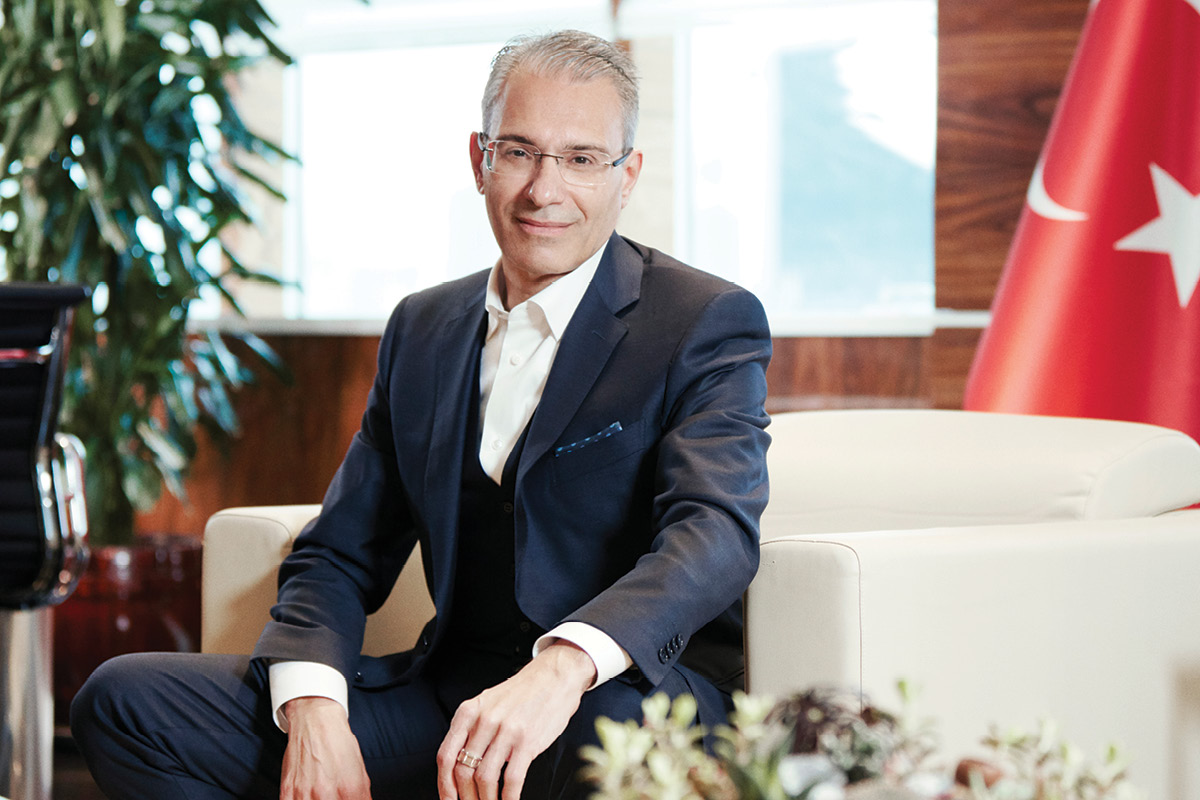To turn a fixed-line company into Turkey’s most valuable telecommunications brand is a notable feat. To achieve that while also leading said company through the complex process of privatisation is an even bigger one. That’s exactly what Paul Doany has managed to do as CEO of Turk Telekom – a role he’s held twice, first between 2005 and 2011 and then again since September 2016.
Turk Telekom is Turkey’s leading communication and convergence technology group. It has a modern network infrastructure that covers the whole of the country, and provides services such as fixed line, internet and mobile. Initially starting life as a state-owned company, Turk Telekom was privatised in 2005 when Saudi Oger Group’s Oger Telecom became the majority shareholder. The Treasury of Turkey also holds a stake in the company.
Paul Doany heads up change at Turk Telekom
Paul says he never imagined that during his two tenures as CEO he would be able to action so much change. “I never thought that we would be able to achieve so much in my time, because I came on very early in the move to become a private company. And to turn a fixed-line company into the most valuable telecommunications brand is unique – that’s normally the privilege of the mobile-phone players in a market.
“Mobile appeals to the customer in the sense that they can actually hold the service in their hands, while the fixed-line service is serving a home or a business. We only ever had a 40% stake in the mobile segment, and Turk Telekom did not own its mobile division. So that was a big achievement.”

I never thought that we would be able to achieve so much in my time.
During Paul’s first stint as CEO of Turk Telekom, he was also the head of parent company Oger Telecom, where he was CEO from 1999 to 2011. In that time, he led several telecommunications operations – Cell C in South Africa (1999–2003) and Cyberia in Lebanon, Jordan and Saudi Arabia (2005–11), in addition to Turk Telekom (2005–11).
His key mandate at Turk Telekom was to manage the investments it was making into start-up ICT companies – ones that would complement and add value to the business’s existing services and operations.
“I left in 2011 to pursue my own personal investments,” Paul says. “I was very keen on digital strategy, which the board wasn’t backing in full at a telecommunications level, although Turk Telekom did have some interest in it. So I ended up moving into venture capital, making early-stage investments into IT and internet companies.
“All up, I made 20 investments, all of which were in the digital space, except for one in geothermal power, which was a new adventure for me. I also did a little bit of short-term consulting work, but mostly I was following my own investments in Turkey. I believe in the market here and in the demographics of the market, especially the younger age group and the seriously underserved internet community.”
Turk Telekom grows its customer base
When Paul was reappointed CEO of Turk Telekom late last year, his intention was to fix the basics. “Number one was to grow broadband,” he states. “The broadband penetration hasn’t increased that much in Turkey. It reached around 40% household penetration, but that number really ought to be around 60–70%. I mean, there’s no reason for it not to be. Most of the hurdles against that tend to be regulatory, so I had to focus on that and find a solution. We’ve now achieved that.
“Number two was to grow satellite TV. Turkey has a very low penetration of quality television. I figured that could be an easy target to hit. I made it my aim to disrupt that space and we launched our service earlier this year. We are already second in the market in the satellite TV space, and with that we’re bundling mobiles, so we’re able to offer very aggressive pricing.”

With the broadband and satellite initiatives now in play, Paul foresees that there will be future opportunities in what he refers to as ‘wireless’ and ‘wired’ homes. “A ‘wireless’ home is one that gets its entertainment by satellite; and a ‘wired’ home is one that gets it by broadband,” he explains. “So I need to reach both these markets.”
A commitment to investing in small companies
Another area of focus for Paul is to promote two of the company’s brand values: innovation, and its commitment to investing in small companies. During his first tenure leading Turk Telekom, he led four investments in IT businesses: iNNOVA, which is strong in the customer-service space and is doing work with ‘smart cities’; Argela, a technology company that works quite heavily in the voiceover IT space; Sebit, an education company; and a game company, which has since closed down. Today, Turk Telekom also has AssisTT as a subsidiary, which is a solutions-driven contact centre company.
“Each of these businesses speaks to our brand but they also increase our equity value in areas where telecommunications can’t. For example, in the education sector, one of the companies is uniquely placed to serve students of night schools, people who are studying in preparation for university. Thus, it is a unique product.
“Then, in the health sector, I want to reactivate projects that in my first tenure were perhaps too advanced because we didn’t have the devices. That was the pre-smartphone era, and obviously now with smartphones and tablets we can revisit that space. We’ve found three companies in the market that have taken steps in that direction, so we plan to make some investments in them.”
Going forward, Paul reiterates that health and education will be key, and that he also has a keen interest in the electricity sector. “By entering these industry segments, we can offer services that are more meaningful to the Turk Telekom end user – the best-case scenario – or at least more meaningful to the operating partner who is then serving that end user,” he says. “That’s the aim, to be well-equipped to service both.”



